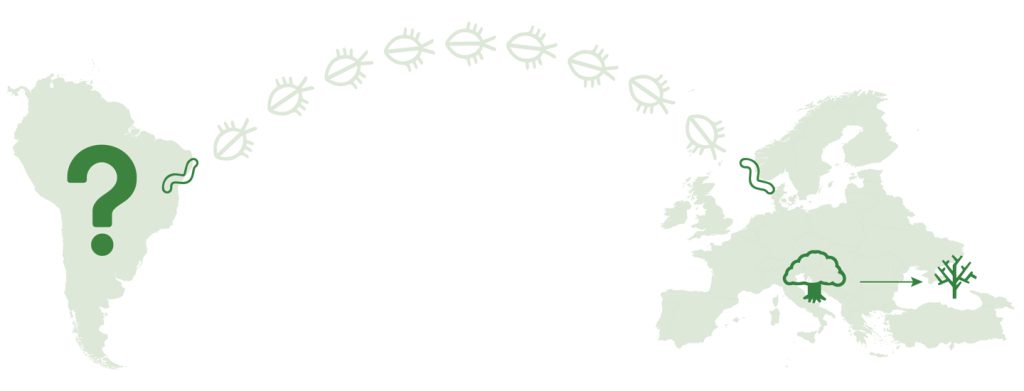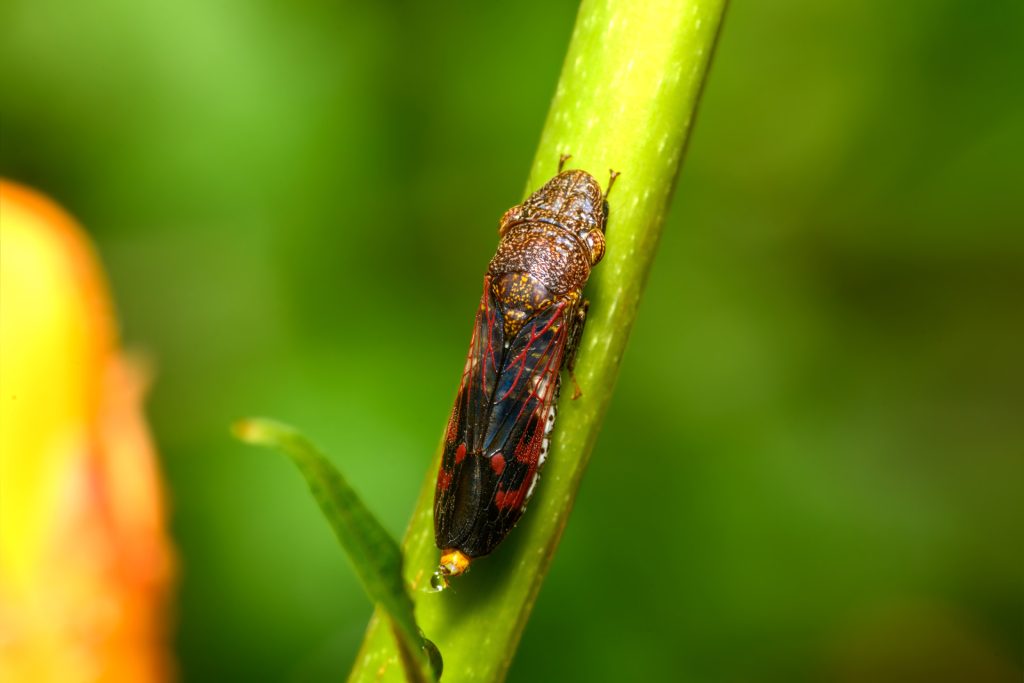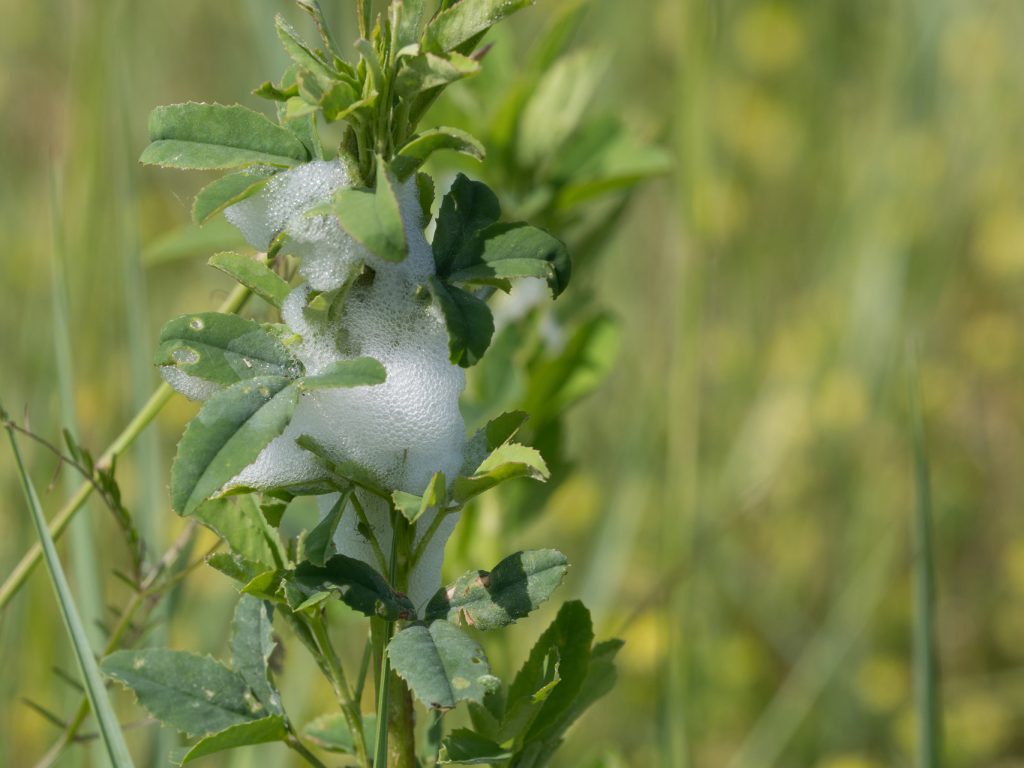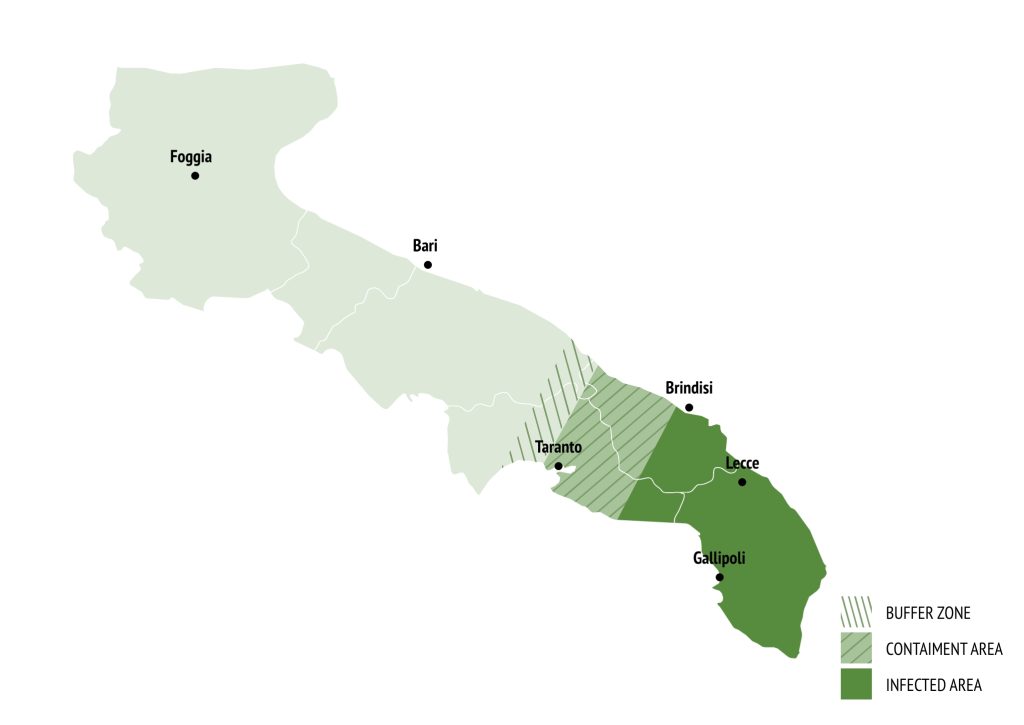Xylella fastidiosa
What is it?

Xylella Fastidiosa is a bacterium presumably arrived from South America, which leads to the drying out and death of olive trees: what it does is blocking the xylem vessels of the plant, i.e. the 'veins' that supply the tree with necessary nutrients. With the vessels blocked, the tree slowly dries out and eventually dies.
The bacterium does not only attack olive trees: many plant species, including fruit plants of great agro-economic interest belonging to the Vitis and Citrus genus, as well as almond, peach and oleander, can be attacked by Xylella. Moreover, the bacterium has a great recombinant force, making its progress and evolution unpredictable.





How does it spread?
Xylella is carried by a small vector insect: Filenus Spumarius, commonly called spittlebug, is the main cause of the exponential spread of Xylella Fastidiosa in the provinces of Lecce, Brindisi, Taranto and now Bari. According to recent research, other insect species have also been found to be carriers of the bacterium.
Where does it spread?
Officially introduced to Italian territory in 2013, within two years it had already spread to over 230,000 hectares of land. Xylella arrived in Gallipoli, in south-eastern Italy, and is now moving northwards across the whole Apulia.
To date, the bacterium's advance is estimated at about 30 km per year to the north.

Unfortunately, Xylella has already crossed borders, infecting parts of Spain and Corsica in France. This makes it not only an Italian problem but a Mediterranean problem that is spreading very rapidly.
WHO WE ARE
Save the Olives ONLUS is a non-profit organisation of volunteers tackling the Xylella Fastidiosa epidemic in Apulia, southern Italy.
CONTACTS
-
Piazza Antonio Dell'Abate 4
73039 Tricase Lecce
Italia - info@savetheolives.org
- 2022 - Save The Olives ONLUS - P.Iva 05230540758 - C.F. 90049220750